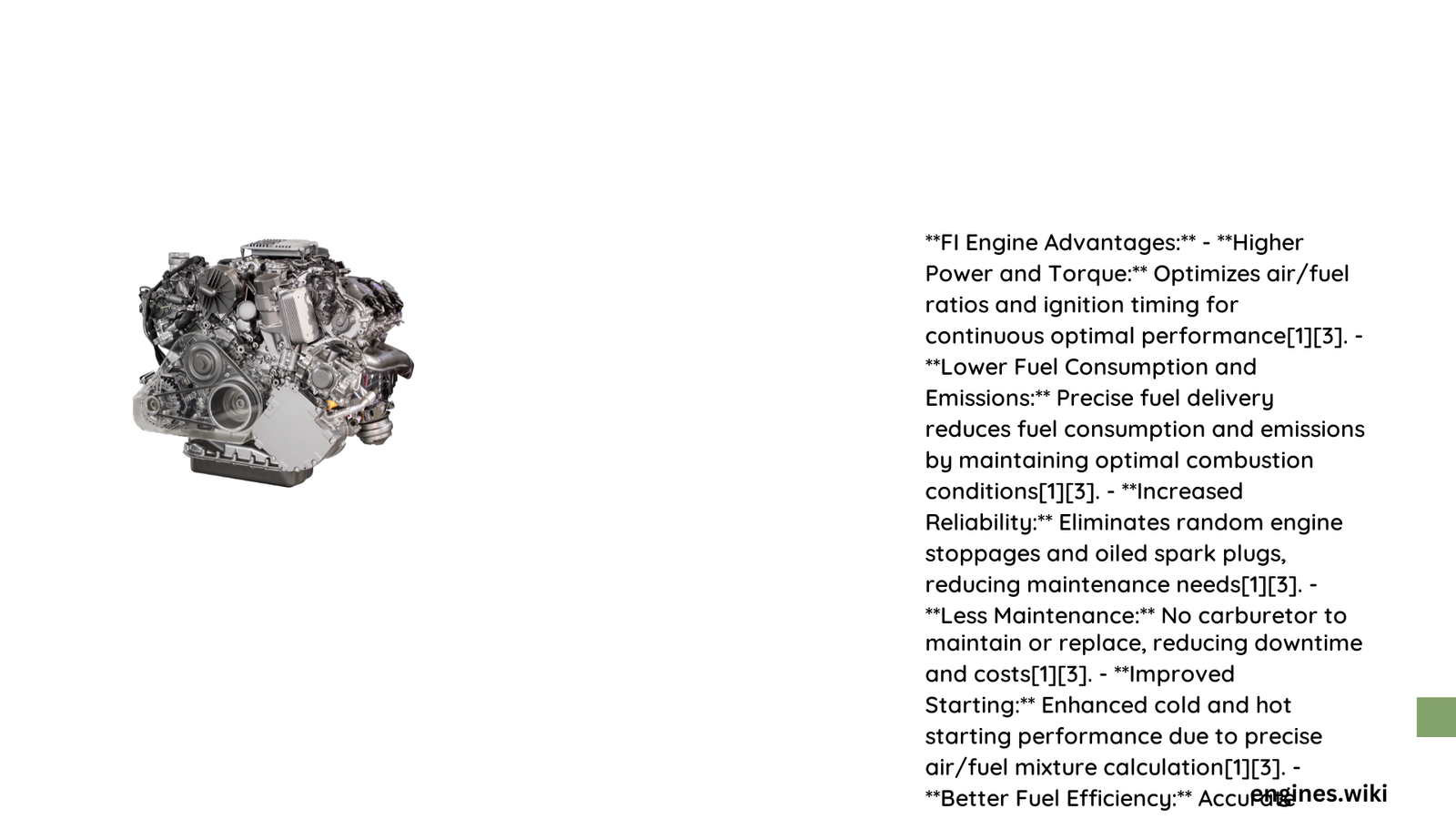Fuel Injection (FI) engines represent a technological breakthrough in automotive engineering, offering unprecedented advantages that transform vehicle performance, efficiency, and environmental sustainability. Modern FI systems provide precise fuel delivery, optimize combustion processes, and deliver significant improvements across multiple automotive performance metrics, making them a superior alternative to traditional carburetor-based engine technologies.
What Makes FI Engines Superior to Carbureted Systems?
How Does Fuel Injection Improve Engine Efficiency?
Fuel injection technology revolutionizes engine performance through precise fuel management. Unlike carbureted systems, FI engines can:
- Deliver exact fuel quantities
- Adjust mixture instantaneously
- Minimize fuel wastage
- Optimize combustion efficiency
| Performance Metric | Carburetor | Fuel Injection | Improvement |
|---|---|---|---|
| Fuel Efficiency | 20 MPG | 22-24 MPG | 10-20% |
| Horsepower | Standard | Enhanced | 5-10 HP Increase |
| Emissions Reduction | Higher | Lower | 20-30% Decrease |
Why Do FI Engines Provide Better Fuel Economy?
FI engines achieve superior fuel economy through advanced technological features:
- Precise Fuel Metering: Electronic sensors continuously monitor and adjust fuel delivery
- Real-Time Mixture Optimization: Instantaneous air-fuel ratio corrections
- Reduced Mechanical Complexity: Fewer moving parts compared to carburetors
- Enhanced Combustion Efficiency: More complete fuel burn
What Performance Enhancements Can Drivers Expect?
Performance improvements with FI engines are substantial and multifaceted:
- Acceleration Responsiveness: Quicker throttle response
- Consistent Power Delivery: Smoother power across RPM ranges
- Cold Start Performance: Improved starting in various temperature conditions
- Altitude Adaptability: Better performance at different elevations
How Do FI Engines Contribute to Environmental Sustainability?
Environmental benefits of FI engines include:
- Reduced carbon emissions
- Lower greenhouse gas production
- More efficient fuel consumption
- Compliance with stringent emission standards
What Technical Innovations Enable FI Engine Advantages?
Key technological innovations driving FI engine advantages:
- Electronic Control Units (ECUs): Advanced computational systems
- High-Precision Injectors: Microsecond-level fuel delivery
- Sophisticated Oxygen Sensors: Continuous mixture monitoring
- Adaptive Learning Algorithms: Self-optimizing engine management
Are FI Engines More Reliable?
Reliability factors of FI engines:
- Fewer mechanical components
- Less wear and tear
- Predictable maintenance cycles
- Extended engine lifespan
Cost Considerations for FI Engine Technology
While initial implementation costs might be higher, long-term benefits include:
- Lower fuel expenses
- Reduced maintenance requirements
- Enhanced vehicle resale value
- Improved overall ownership experience
Conclusion

Fuel Injection engines represent a significant leap in automotive engineering, offering comprehensive advantages that extend beyond traditional performance metrics. By combining technological sophistication with practical efficiency, FI engines continue to shape the future of transportation.
